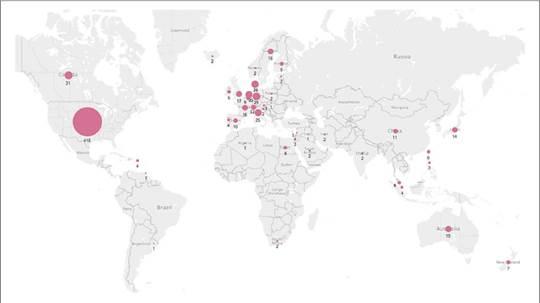
JRC scientists reviewed the literature to understand whether information about biomarker testing in breast cancer is collected and published by cancer registries worldwide. The study revealed that harmonising biomarker data collection across Europe is needed to facilitate reliability and comparability.
Biomarkers are molecules found in our body that can be used as indicators of normal biological processes. In the context of cancer, they can be substances produced by the cancer cells or by the body, in response to that cancer.
Biomarkers are used in diagnosis, staging, subtype differentiation or treatment responses for different types of cancer.
For breast cancer, the most recent clinical guidelines recommend testing for several biomarkers that could aid in treatment decisions.
Data on tested breast cancer biomarkers, associated with other variables such as treatment and staging, are very valuable. For example, they may improve the interpretation of geographical patterns and temporal trends of cancer incidence, mortality and survival data.
This JRC study reviewed the literature on the collection and publication of biomarkers data in breast cancer cases by cancer registries worldwide. Cancer registries are a valuable source of information to evaluate cancer burden in a population and to compare geographical patterns and temporal trends of cancer incidence, mortality and survival.

The study shows that a steep rise in the number of publications paralleled the recommendation on the testing of biomarkers that was issued in clinical guidelines around the year 2000. Around half of the publications used data from the US, followed by 30% from European data.
It can be concluded that biomarkers provide valuable prognostic and predictive values in breast cancer care. However, inter-clinical and inter-registry differences in the collection and interpretation of data call for harmonisation efforts.
This will ensure comparability of the data across Europe and its potential inclusion in the European Cancer Information System web application. This application provides the latest information on indicators that quantify cancer burden across Europe. The use of these biomarkers data should complement and improve the interpretation of the main cancer indicators.
Read more in:
V. von Voithenberg, et al.: Cancer registries – guardians of breast cancer biomarker information: A systematic review. Int. J. Biol. Markers (2019).
DOI: 10.1177/1724600819836097
Related Content
Cancer registries - guardians of breast cancer biomarker information: A systematic review
Details
- Publication date
- 27 May 2019
